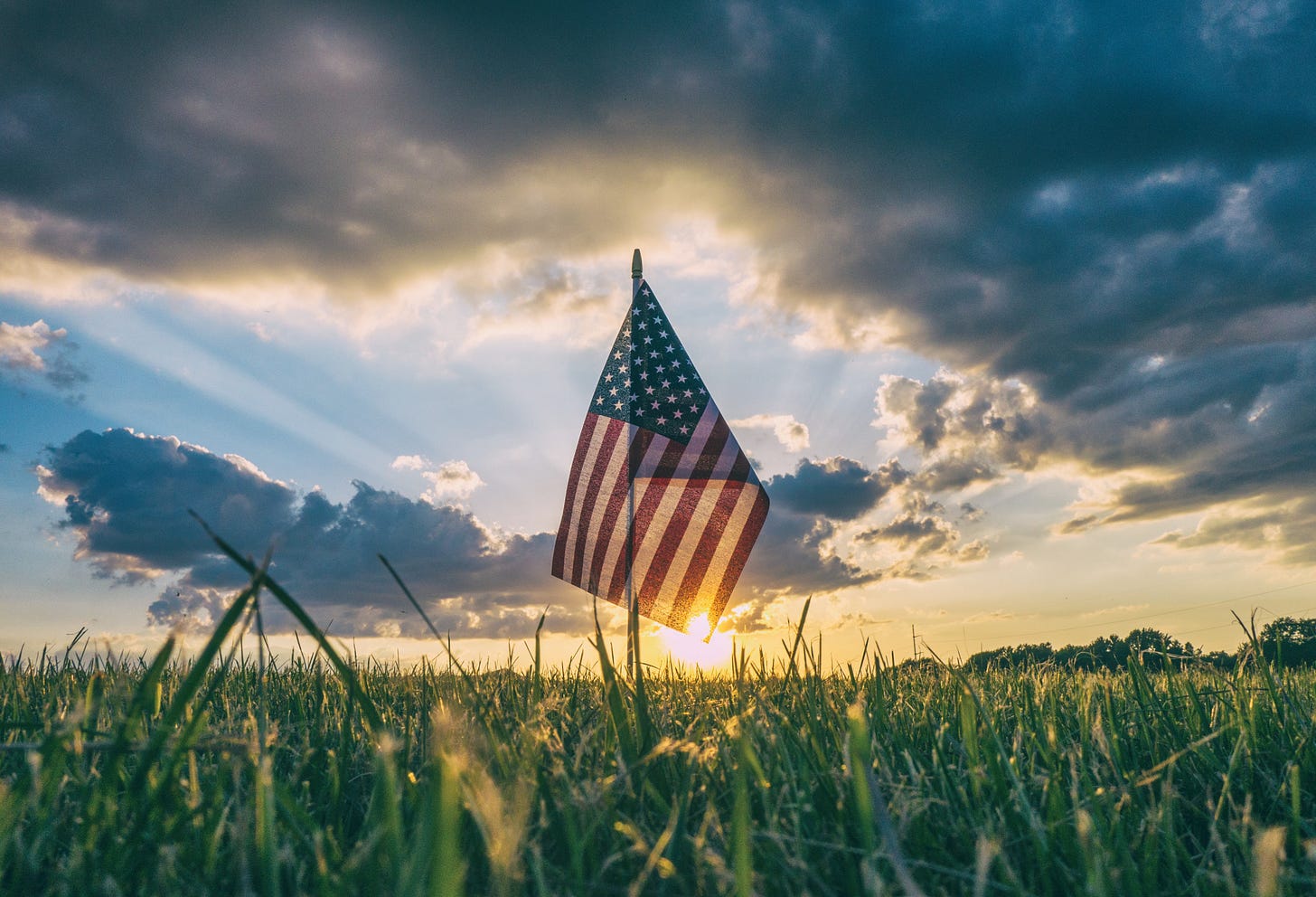Star Spangled Banner
A historical reflection on how the most famous song in America resonates today.
Almost exactly 207 years ago today, the history of our country changed forever.
And a song was created that every American would one day know, word for word.
British troops marched on our young nation’s capital and burned down Congress, the White House, and the Treasury building.
At the time, many people called this conflict the second revolutionary war, as it happened only 33 years after the Revolutionary War, but it is now called the War of 1812.
England remained a world power, and America was a poor, startup country.
The first two years of the war were uneventful and filled with mostly small skirmishes. But when the Allies defeated Napoleon in April of 1814, England was able to turn their entire focus to the United States of America.
This was a devastating development for our young country.
Donald Hickey, author of The War of 1812: A Forgotten Conflict, says, “The Army was understaffed, untrained, poorly equipped and led by superannuated and incompetent officers. The Navy was just plain outmatched by the Royal Navy.”
England marched on Washington DC and burned down our nation’s capital, Congress, and the Treasury, forcing President Madison to flee over the Potomac.
At the same time, up in Baltimore, an influential doctor by the name of Dr. William Beans was captured.
Dr. Beans reached out to a local attorney and asked him to negotiate a prisoner exchange for his freedom. The attorney he hired was Francis Scott Key.
Francis Scott Key boarded the Tonnant, a flagship of the British fleet, where Beans was being held and spent day after day negotiating the release of Dr. Beans. After 7 days, a deal was made. Dr. Beans would be released to Francis Scott Key, but during the negotiations, England started to attack America’s third largest city- Baltimore.
Francis Scott Key and Dr. Beans were forced to stay on the British ship as a fleet of English boats entered the Chesapeake Bay and surrounded Fort McHenry.
For those who haven’t been to Fort McHenry, it is located just off the shores of Baltimore, in a waterway that controlled access to Baltimore. In other words, a fall of the Fort would lead to the fall of the entire city. And likely the fall of our country.
On the morning of September 13, 1814, bombs started raining down from the English fleet onto Fort McHenry.
For hours, aboard a British ship, Francis Scott Key and Dr. Beans watched bomb after bomb blast on the only protections of their hometown.
Shells and rockets fell on the fort at a rate of one per minute.
For one hour.
Two hours.
Five hours.
Ten hours.
Fifteen hours.
Twenty hours.
Twenty-four hours, they watched a horrific attack on American soil.
It is estimated that nearly eighteen hundred shells were fired during the attack.
According to Key, “It seemed as though mother earth had opened and was vomiting shot and shell in a sheet of fire and brimstone.”
As darkness descended, Key remembered that the sight of the constant bombardment, which lit up the entire sky with a‘red glare’ from the new British rockets, left tracing fiery arcs across the sky.
As the fog lifted off the water, and the sun lit the sky, unsure of the outcome of the battle, Francis Scott Key looked off the bow of the boat and expected to see the Union Jack flying over Fort McHenry, but instead saw the American flag was still there.
America had not surrendered.
On the morning of September 14th, America was victorious, and our national anthem was played: Yankee Doodle.
Francis Scott Key left the Tonnant with Dr. William Beans, returned home, and wrote the following poem:
O say can you see, by the dawn's early light,
What so proudly we hailed at the twilight's last gleaming,
Whose broad stripes and bright stars through the perilous fight,
O'er the ramparts we watched, were so gallantly streaming?
And the rocket's red glare, the bombs bursting in air,
Gave proof through the night that our flag was still there;
O say does that star-spangled banner yet wave
O'er the land of the free and the home of the brave?
The words were then put over the top of an English drinking song: “The Anacreontic Song”.
It was not until 1930, 116 years after it was written, that our national anthem of Yankee Doodle was officially replaced as the National Anthem.
America stood up to the most powerful navy in the history of the world, and refused to back down.
Courage, Resilience, and a Willingness to fight against impossible odds are what we celebrate when we sing our national anthem.
The spirit of that song lives out in the values of our organizational mission every day - Courage, Resilience, and a Willingness to fight against impossible odds.
It is not easy work.
But it changes the world.



